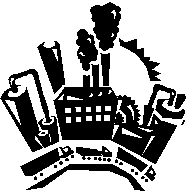
Corporate Capitalism - a new economic system emerged between 1880-1920 which made the US the industrial leader of the world after World War I

For a good definition and summary of theories, characteristics, see: http://www.uwsp.edu/geo/courses/geog100/About_Capitalism.htm
Characterized by increased:
1.Industrialization - Widespread use of corporations resulted in the birth of Big Business, which allowed investors to invest with limited liability, and allowed diverse kinds of business activity.
- The expanded use of technology brought an expanded means of transportation and development of a greater means of communication.
- Produced goods 1860-1900 went from $1.9 - 11.4 billion
- Agricultural declined--which changed the public image of the farmer.
(1) Pre-Civil War - yeoman farmers = rugged, independent.
(2) Post-War - farmers, no longer considered to be the ideal American, were increasingly thought of as hay seed, rednecks, hicks, leading to political decline.
e. The loss of political clout by rural society led to the growth of Farmer's Alliances and the Granger Movement, and later the Populist Movement.2.Immigration - the rise of American industry attracted immigrants from a number of economically depressed areas of the world (especially Russia and Italy), which provided Big Business with a cheap labor force of unskilled laborers.
- New Immigration - a reference to immigrants coming from less desirable countries, Eastern and Southeastern Europe, Greek Orthodox, Russian Orthodox, Jewish Immigrants. The US population in 1900 (76 million) had doubled since 1860.
- "Native" Americans feared that this influx of immigrants would alter the face and culture of America.
WASPs (White, Anglo- Saxon Protestants) saw their institutions ethnically, culturally, legally linked with Britain.3.Urbanization
- Immigrants flocked to Northern cities, giving a sense of uncontrolled growth (1) Chicago in 1860 had 100,000, but by 1900 had 1 million population.
- The immigrants often settled in ethnic enclaves or ghettos.
New cities developed along this ethnical pattern which resulted in poor, inadequate housing, in slums as areas deteriorated, in inadequate social services decreasing health care and sanitation, all of which led to political corruption.- "Bossism " developed.
1) A political boss, heading a well-oiled political machine, maintained power through voter manipulation, corruption and graft.
2) But some social services and protections were provided
"Big Tim" Sullivan, ward boss in NY (lower eastside), brought in the vote by giving immigrants dinners, offering a job placement service, new shoes, and in return, politicians allowed him a free hand in gambling and liquor businesses.4. Unionization
- Few effective national union efforts occurred before the Civil War. As industry increased and pursued the maximization of profits, workers were short-changed in benefits and safety which gave rise to the growth of national unions as tooIs for collective bargaining against Big Business and ruthless business tycoons.
- Workers had only one effective tool - "strike" ("lay down ones tools".)
- Labor unions in the gilded age divided over what approach to take in organizing (1) Who should be included - all workers or restricted somehow? skilled only or unskilled too?
(a) Because immigrants and Southern Blacks were often strikebreakers, unions usually fostered anti-immigrant, anti-black sentiments;
(b) Immigrants were often reluctant to be organized, being willing to work longer hours for less pay to get established in their new location;
(c) women - although there was a push to include women in all-inclusive unions, the prevailing social attitude defined the "woman's sphere" as the home, at the hearth the core of the family as protector, guardian, nurturer of the family, an attitude that pressured unions to exclude them.
5.Imperialism -- Manifest Destiny had in the 1840s-50s carried the US from sea to shining sea. With the close of the frontier (US Census in 1890), a new Manifest Destiny emerged which fit into the American ideal of imperialism and sought overseas expansion.
- The American type of empire, however, differed from the British type. US imperialism was an informal empire. The British system required vast territorial holdings, with costly administrations and a large military presence to
maintain.- Americans sought to spread the gospel of the American system, our Democratic institutions and use the US dollar to obtain economic allies without large military and administrative establishments.